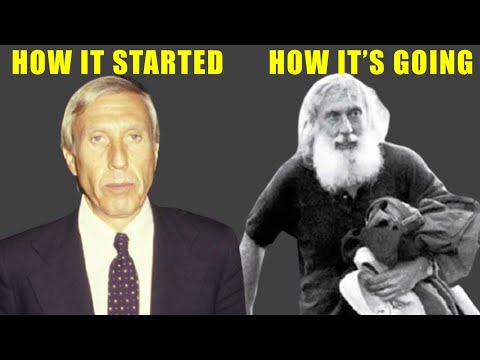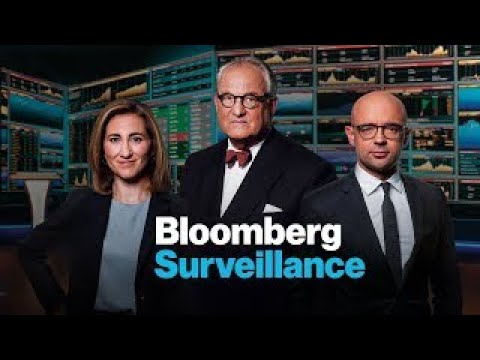The Five Biggest Insider Trading Scandals

Welcome back to Patrick Boyle on Finance. Today’s video is about insider trading and the lessons we can learn from it. If you are worried about it being dull, rest assured, we do have the biggest insider trading scandals here, but those scandals include strippers, bombers, pickled sharks and even snoop dogg.
Foshizzle (I don’t really know what that means, I was told to say it by a young person). While this was meant to be a top five video, right before filming I found a sixth one that was so good, I had to shoehorn it in, so stay tuned to the very end. I guess what I’m trying to say is I’ve got some good stories for you. Now, When most people hear the term “insider trading,” they think of the crime. But insider trading is just the trading of a public company's securities by people with access to nonpublic or insider information about the company.
There are rules around how insiders are allowed trade, forms they have to fill out and so on, and these differ around the world. Insider trading becomes illegal when a person bases their trading decision on information that the public does not know. It is illegal to trade stock in a company based on insider information, and it is also illegal to pass on that information to another person so that they can trade. In such a situation the person passing on the information is breaking the law as is the person receiving it if they trade on the information.
Securities regulators want to make sure that all investors are making decisions based on the same information. And, this is important, because in parts of the world where such rules are not enforced the public lose faith in markets, which both makes it hard for companies to raise money(as no one wants to invest without inside information), it also prevents the public from earning good returns on their savings by investing which is bad for the economy. One of the reasons that investors are less willing to invest in emerging markets is that they feel they might be the sucker at the poker table. Today’s content is brought to you by our sponsor ProFundCom, run by my friend Paul Das. If you are looking to use email marketing to raise assets and connect with potential investors, ProFundCom have being helping hedge funds, asset and wealth managers to do just that for the last 18 years. ProFundCom works with some of the biggest names in finance, and they have a great reputation in the industry.
If you would like a demonstration on how they do this click on the link in the description below. So let’s kick off with our first story, Ivan Boesky. In 1985, Boesky was one of the top traders in the world, he had recently written the bestselling book ‘merger mania’ and was invited to give a speech at The Haas School of Business at Berkeley – in California. The topic of his speech was that greed was “healthy.” The story goes that this speech and Boesky himself inspired the iconic character of Gordon Gekko in the 1987 film “Wall Street.” Boesky’s career initially got off to a slow start, in his twenties, he managed a pub owned by his father.
In his thirties, he worked at a few brokerage firms in New York but had little success. Then he had the good sense to marry a wealthy woman and was able to open his own Brokerage firm using money provided by her family. His firm specialized in merger arbitrage (I made a video on how this trade works a few months ago – I’ll link to it at the end), he did well for a while, but after losing a lot of money in 1982, he entered into a deal with an investment banker at Kidder Peabody to get inside information on pending corporate transactions. He entered a similar deal shortly afterwards with another investment banker at Drexel Burnham Lambert. In his book Merger Mania, Boesky describes how the merger arbitrage trading strategy works, but also explains that he trades the strategy better than anyone else because he simply has an innate instinct for when a deal is about to happen.
It turns out it wasn’t exactly an instinct. At his peak Boesky was managing close to a billion dollars and had a personal net worth of a hundred million dollars. Boesky who had failed out of his undergrad degree at the University of Michigan, donated money to Harvard University and became a member of the Harvard Club in New York where he would host meetings.
He would drop hints that he had an Ivy League education and hired a PR firm to get his name in the newspapers as much as possible. In November 1986 Boesky was arrested for insider trading. He cooperated with the federal prosecutor Rudy Giuliani, plead guilty to a charge of making false statements to the government and received a then-record $100 million fine. He reduced his sentence by informing on his partners, and additionally offered the prosecutor information on the “junk bond king” Michael Milken.
Boesky ended up serving two years in prison, a reduced sentence due to the list of people he turned in to Rudy Giuliani,this series of prosecutions kickstarted Giuliani’s career. About a year after Boesky got out of prison his wife divorced him and ended up paying him a settlement of $23 million. I guess that makes sense – as he had to be kept in the style to which he had become accustomed. So, Next up we have an old neighbor of mine from when I lived in Connecticut, America's goddess of domestic perfection Martha Stewart, The woman who taught Snoop Dogg how to cook. Martha Stewart is someone who would have understood securities regulation, as she started out her career as a stockbroker in the 1960’s, not only did she have that background, but at the time of the insider trading scandal she was actually a director on the board of the New York Stock Exchange.
So what went wrong? Well, Sam Waksal, was the CEO of ImClone (a biotech company), he learned that the FDA had rejected their main product for approval, and quickly dumped his $5million worth of shares, prior to the news being made public. He also sold his daughters shares. This was illegal insider trading. Martha Stewart unfortunately used the same broker at Merrill Lynch as Sam Waksal. The brokers assistant called her up, told her that the CEO had dumped his shares and asked her what she wanted to do with her shares. She said sell them.
This position would not have been meaningful for Martha Stewart. She had become a billionaire two years earlier when her company, went public. By following this tip, she saved herself from a $45k loss - as two days later, the stock fell 16% when the public announcement occurred. (This was point zero zero four percent of her net worth at the time). Waksal was easily enough caught by the SEC; He had attempted to avoid a loss based on the nonpublic knowledge of the FDA's decision, which he knew would hurt the stock's value and he did not comply with the SEC rules for selling his shares.
Stewart's case was a bit trickier. While she had certainly made a suspiciously timely sale of her stock, regulators would have to prove that she had acted on insider information to avoid the loss. The SEC found that Martha had acted on a piece of nonpublic information, but that the information was not knowledge of the FDA's decision.
She was not a board member and had no other affiliation with ImClone, Stewart did not know about the FDA decision. She did, however, act on a tip that she knew breached her broker's duty The SEC had to show that she knew her actions were questionable at the very least and illegal at the worst. Prosecutors focused on the lies she told to cover up the facts surrounding her trade. She was sentenced to 5 months of prison time for obstruction of justice and conspiracy.
In addition to the prison sentence, she paid a fine of four times the amount of the loss she avoided plus interest, which came to $195,000. She was forced to step down as CEO from her company for a duration of five years and was not to associate with people with criminal records for an additional two years. In 2008 Martha was refused entry to the UK due to her criminal record, joining her friend Snoop Dogg on the list of people banned from entering the country. Who knows what they might get up to… Our next big insider trader is Raj Rajaratnam, who by 2007, had built his hedge fund Galleon Group into one of the world’s largest funds. The SEC received a tip that Galleon Group might be involved in insider trading(they had actually been investigated for this in the past), and they launched an investigation.
the SEC subpoenaed Galleon’s electronic records and combed through more than 10,000 documents, including instant messages. Raj, who had been in trouble before, knew the SEC would monitor instant messages, so instructed his sources to only speak on the phone, and to never write anything down. Investigators did notice a series of suspicious instant messages and they worked out that the sender was Roomy Kahn — a woman who pled guilty to insider trading a decade earlier, in a prior scheme with Raj. When approached she agreed to become an FBI Informant.
Investigators discovered that Raj had built a network of insiders in numerous public companies who would feed him information. He used inside information to trade ahead of public announcements about earnings, corporate forecasts, mergers and spinoffs illegally trading the stocks of more than a dozen companies, according to the evidence at the trial. Among the companies that he traded illegally were Intel, Goldman Sachs, Google, ATI Technologies, Akamai Technologies and Hilton Hotels. This case was important because of the way federal investigators proved wrongdoing.
For the first time, investigators used wiretaps to try to catch an insider trading suspect. Raj was caught on tape repeatedly discussing insider information with friends and colleagues. The case represented a major step forward in enforcing insider trading laws. Wiretaps previously had only been used for evidence against organized crime figures or drug dealers, and using the tool for insider trading was a sign that regulators were very serious about enforcement. In 2008 at the depths of the global financial crisis, Galleon group was losing money.
Raj was under pressure but then managed to reel in his biggest source yet. Rajat Gupta who was an investor in Galleon was also the former head of McKinsey and served on the board of both Procter & Gamble and Goldman Sachs. In July 2008, Raj took a call from Gupta, investigators listened in as Gupta told Raj about secret negotiations between Warren Buffett and Goldman Sachs, where Buffett would invest $5 billion in Goldman Sachs, recapitalizing the firm.
This was just one of the 2400 phone conversations that federal agents recorded. In 2011, Raj was found guilty on 14 counts of conspiracy and securities fraud. He was sentenced to 11 years in prison and fined $92.8 million dollars. To date, this is the longest prison sentence ever handed out for insider trading. The thirteen other defendants connected to the case received prison sentences averaging approximately three years each.
Two years before the end of his prison sentence, Raj was quietly released to house arrest, thanks to a new federal law that Kim Kardashian had lobbied President Trump to sign. The law is intended to help undo the effects of mass incarceration of nonviolent criminal offenders. I’m not sure if it is true or not, but I heard that he was not allowed to associate with either Martha Stewart or Snoop Dogg under the terms of his release.
Next on our list is the famous pickled shark collector and hedge fund manager Steve Cohen. Cohen founded SAC capital in 1992 and averaged annual returns of 30% per year after all fees over the life of the fund. I’m told that he bought a majority stake in the New York Mets last year just so he would know what it feels like to lose. Steve has a history of being investigated for securities fraud, having first being investigated in the 1980’s while working at Grunthal & Co. In the case against SAC Capital, the US regulators alleged that Cohen hired people specifically because they had relationships with senior management at publicly traded companies, who they could mine for information. The regulators claimed that Steve incentivized employees to bring illegal insider information to the firm and pass it up the food chain to him so that he could trade on it.
In 2012 regulators charged a former SAC employee Matthew Martoma and a current employee of the firm Michael Steinberg with securities fraud hoping that they would flip, cooperate and testify against Cohen. The SEC brought charges against a number of S.A.C. employees between 2010 to 2013 with a variety of outcomes. In response to the investigation SAC’s lawyers booked a meeting with the prosecutors making a four-hour presentation to convince the prosecutors that they could not possibly win a case against Steve Cohen. The government’s main case relied on an e-mail that a portfolio manager(Steinberg) had received from his analyst.
The analyst had obtained inside information about Dell Computer from a friend, and had shared it with his boss. The information came from someone at Dell and described how Dell would miss their earnings estimates. The e-mail was forwarded internally at S.A.C., and, eventually, to Cohen.
Shortly afterwards, Cohen began selling the half million Dell shares that he owned. When Dell made its earnings announcement: it missed the estimates, and its stock fell. Cohen avoided a loss of $1.7 million.
In the presentation Cohens lawyers described how Cohen received almost a thousand e-mails every business day and said that he only looked at around 11% of them. Cohen they said lived in a swamp of information so deep that there was no way to prove that any particular e-mail was read, let alone acted upon. There was no method to what he did; it was all improvisation. The prosecutors didn’t believe this, they had been investigating the firm for seven years and felt the firm was organized specifically to feed information like this to Steve while insulating him from blame. They were nervous about this argument though and that they had no witnesses or hard evidence to implicate Cohen directly.
After the meeting the prosecutors changed tact, they decided to charge SAC capital (the fund) instead of charging Steve Cohen the individual. Historically prosecutors don’t charge companies with criminal wrongdoing as it can shut down companies leading to enormous job losses. In 2013 SAC agreed to pay a $1.8 billion fine. (The fine was actually $1.2 billion, because they were given credit for the $600 million
in fines that they had already committed to pay) The settlement would also include a guilty plea by S.A.C.—an admission, in court, that the firm had done exactly what the government was accusing it of. SAC was accused of making a number of insider trades that over time came to a profit of around $300 million dollars.
They ended up paying a fine of around six times that number. Prosecutors and regulators could not nail Cohen, although they tried their best. The closest they got was to jail Mathew Martoma for nine years. Martoma was a portfolio manager who gained inside information about an Alzheimer’s drug from a doctor who was running its trial.
There was insufficient evidence of any criminality by Cohen, although SAC profited hugely by trading in the companies involved. Following the demise of SAC, Steve Cohen was prevented from professionally managing investor money until 2018, he opened Point72 Asset Management right afterwards, a family office to manage his ten billion dollar fortune and began taking client money again when his two year ban ended. Next on our list we have James McDermott Jr., the former chairman and CEO of KBW a New York based Investment Bank, who was arrested and charged with insider trading by federal authorities in 1999. The married father of two was passing inside investment tips to the exotic dancer, escort and porn actress he was seeing. Yes, she had three jobs, and was trading on the side… According to the complaint, McDermott provided material, non-public information pertaining to at least six merger transactions to "Marylin Star, who used the information to purchase securities, making 88 thousand dollars in profit.
In addition, she passed the insider information to her boyfriend- a different boyfriend-, who federal authorities believe made 86 thousand dollars from the tips. Federal officials said that McDermott did not profit “financially” from the scheme. Apparently he passed along information on a number of pending merger transactions that were being conducted by his firm. Marilyn Star, whom authorities claim had "minimal experience (sorry minimal investment experience”), opened up a brokerage account and began investing in small regional banks right before merger announcements. Her other boyfriend opened a Schwab account just one month later and began trading in the same stocks. This of course drew the attention of securities regulators.
McDermott's lawyers blamed his lapse in judgment on alcohol, depression and family problems (i’m guessing the family problems didn’t improve after the news broke). "During this trial I was called a stud stock-picker and a master of the universe," he told the court. "Those things could not be further from the truth. I'm just an average person who's tried to work hard and to give back." He did end up giving back, by paying a $25k fine and spent five months in prison. And finally, number six in this top five… In what sounded like a plot from a Bond film, police arrested a man on suspicion that he attacked the bus of German soccer team Borussia Dortmund in 2017 as part of a scheme to profit from a slump in the club’s share price.
Serge Wenergold, detonated three pipe bombs on the side of the road as the teams bus drove by. On the day of the attack, he spent $85,000 buying 15,000 put options on the teams shares betting that they would drop sharply after the attack. One player was injured by the bomb, and while the stock initially dipped, it went up the next day. The unusual trades raised suspicion of money laundering with bank employees, prompting them to alert authorities and to pass on the identity of Wenergold, which led to his arrest. He was charged with 28 counts of attempted murder, and was sentenced to 14 years in prison. There are many laws being broken here, the least of which is insider trading.
I’m not really qualified to give legal advice to my audience, but you really shouldn’t do any of these things. According to the SEC website, there are almost 500 civil enforcement actions each year against individuals and companies that break securities laws. The punishment for illegal insider trading depends on the situation.
A person can be fined, imprisoned or banned from certain regulated roles within companies. The Securities Exchange Act of 1934 allows the SEC to give a reward or bounty to someone who gives the Commission information that results in a fine for insider trading. If you are committing securities fraud, you are very likely to be caught and prosecuted, but, you won’t necessarily make it into one of my videos unless you commit the biggest securities fraud, or if you do it with a parrot on your shoulder, or with a porn star accomplice. Neither me nor my audience have any time for boring frauds! Here is a link to the video I mentioned earlier on Merger arbitrage, let me know in the comments section if you feel I left out a good story, don’t forget to like and subscribe, and do check out our sponsor ProFund Com who I have linked to in the description. See you next week, Bye
2021-05-20 16:52


